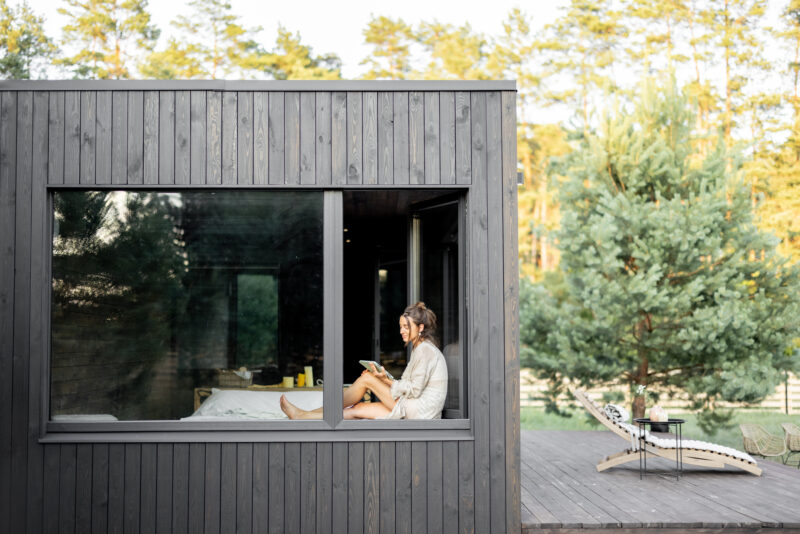The advent of remote work, accelerated by the COVID-19 pandemic, has fundamentally reshaped various facets of society, including the real estate market. As companies and employees adapt to the flexibility and efficiency of remote work, significant shifts are occurring in residential and commercial real estate. This article explores the profound effects of the remote work trend on real estate markets, analyzing the challenges and opportunities it presents.
The Rise of Remote Work
Remote work, once a niche arrangement, has become mainstream. According to various studies, a substantial portion of the workforce continues to work remotely or in a hybrid model.Several factors drive this shift:
- Technological Advancements: Improved communication and collaboration tools make remote work feasible and efficient.
- Employee Preferences: Many employees prefer remote work’s flexibility and work-life balance.
- Cost Savings: Companies can reduce overhead costs associated with office spaces.
Impact on Residential Real Estate
Suburban and Rural Area Boom
One of the most noticeable effects of remote work is the increased demand for homes in suburban and rural areas. As employees are no longer tied to city offices, they seek more spacious, affordable, and comfortable living environments.
- Increased Home Sales: Real estate markets in suburban and rural areas have seen a surge in home sales and prices. For instance, areas outside major cities like Toronto and Vancouver have experienced significant growth.
- Larger Homes: Buyers prioritize homes with extra rooms for home offices and larger outdoor spaces. This demand for bigger homes contrasts sharply with the pre-pandemic trend of urban micro-apartments.
Urban Exodus and Adaptation
While some urban areas experience an exodus, not all cities are equally affected. Major metropolitan areas still hold appeal due to their amenities, culture, and infrastructure. However, the demand dynamics have shifted.
- Decline in Rental Demand: Cities with high living costs have seen a decline in rental demand, leading to reduced rental prices and increased vacancy rates.
- Adaptive Reuse of Urban Spaces: Cities adapt by repurposing commercial spaces into residential units to meet changing demand. This transformation can rejuvenate urban areas and provide much-needed housing.
Impact on Commercial Real Estate
Decline in Office Space Demand
The shift to remote work has reduced the need for traditional office spaces. Companies are re-evaluating their real estate needs, leading to several key trends:
- Office Downsizing: Many companies are reducing their office footprints, opting for smaller spaces or transitioning to shared workspaces.
- Flexible Leases: There is an increased demand for flexible lease terms as companies seek to adapt to uncertain future office needs.
- Hybrid Workspaces: Offices are being redesigned to support hybrid work models, focusing more on collaborative spaces than individual workstations.
Suburban Office Growth
As companies decentralize, there is a growing interest in suburban office spaces. These locations offer a compromise between traditional office environments and remote work flexibility.
- Satellite Offices: Some companies are establishing smaller satellite offices in suburban areas to reduce employees’ commuting times and maintain a physical presence.
- Co-Working Spaces: The demand for co-working spaces in suburban locations is increasing, providing flexible options for remote workers who occasionally need office environments.
Long-Term Trends and Considerations
Sustainable Development
Remote work has accelerated the trend towards sustainable and intelligent real estate development. Developers and city planners are considering:
- Eco-Friendly Homes: Energy-efficient homes with sustainable features are becoming more popular as remote workers spend more time at home.
- Intelligent Cities: Investment in smart city infrastructure is increasing, focusing on connectivity, digital services, and sustainable living.
Economic Implications
The economic implications of remote work in real estate markets are multifaceted:
- Tax Base Shifts: Municipalities may experience shifts in their tax bases as populations move. This can impact funding for local services and infrastructure.
- Local Economies: Areas experiencing population growth due to remote work can see economic boosts, while areas facing depopulation may struggle economically.
Conclusion
The remote work trend undeniably transforms real estate markets, profoundly affecting residential and commercial sectors. Suburban and rural areas are booming, while urban markets adapt to new realities. The demand for office space is declining, but innovative solutions like hybrid workspaces and suburban offices are emerging. In the long term, these changes will prompt a reevaluation of sustainable development and economic strategies.
Understanding and adapting to these trends is crucial for real estate market stakeholders, including developers, investors, and policymakers. The remote work revolution is not just a temporary shift but a long-term evolution that will continue to shape the future of real estate. As such, staying informed and agile in response to these changes will be key to navigating the evolving landscape of real estate in the remote work era.




